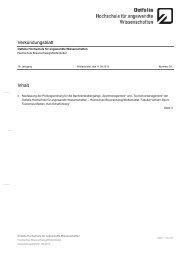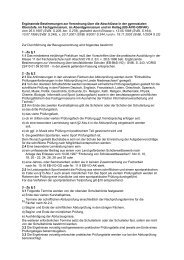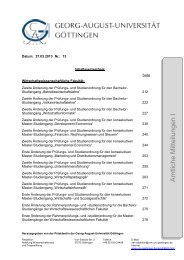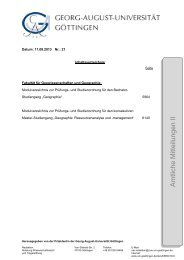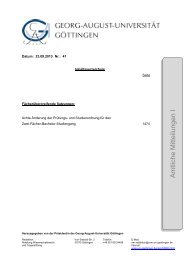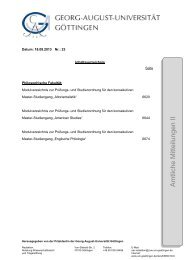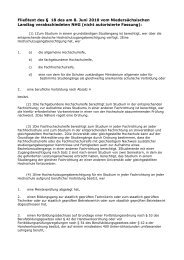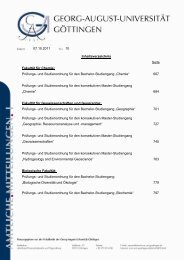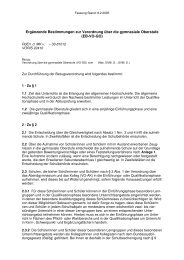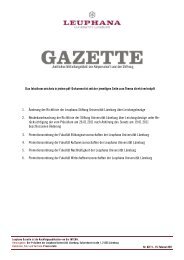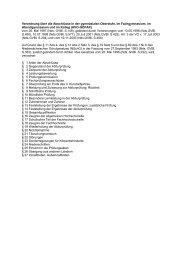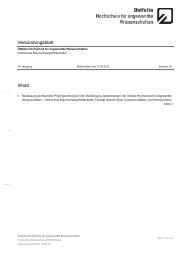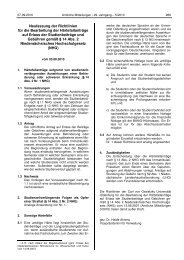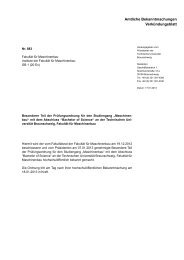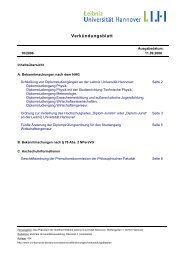Programm Arbeitskonferenz Studierende mit Migrationshintergrund ...
Programm Arbeitskonferenz Studierende mit Migrationshintergrund ...
Programm Arbeitskonferenz Studierende mit Migrationshintergrund ...
Erfolgreiche ePaper selbst erstellen
Machen Sie aus Ihren PDF Publikationen ein blätterbares Flipbook mit unserer einzigartigen Google optimierten e-Paper Software.
Prof. Dr. Rolf Meinhardt war lange Jahre Direktor des InterdisziplinärenZentrum für Bildung und Kommunikation in Migrationsprozessen (IBKM) derCarl von Ossietzky Universität Oldenburg und beschäftigt sich seit rund 25Jahre in Forschung und Lehre <strong>mit</strong> dem Thema Interkulturelle Bildung.12Impulsreferat III: Higher Education in a Changing Society. ChallengingDiversity through Policy and Practice in the Netherlands (Mary Tupan-Wenno)„In todays world there are people who choose to cross borders in order to optfor a better life. ‘Crossing borders’ might suggest crossing geographicalborders only. However in this context ‘crossing borders’ relates to those whocross borders from a psychological, social and cultural point of view. Socialmobility and international mobility significantly changed the student populationin higher education. In 2006 for instance, one of every five inhabitants in theNetherlands was a migrant with a non-western background. ECHO’s vision isthat all Dutch citizens must have the opportunity to realize their full potentialin order to improve and enrich the quality of education and of society,Therefore it is our mission to stimulate and to improve successful participationof ethnic minorities in society and particularly in higher education. Today themulticultural mix at universities is expanding since many students or parentsof students migrated to the Netherlands. A university with a multiculturalpopulation is quite often seen and treated as being similar to a university withan international population. However ,there is a fundamental difference inconnotation whether a university becomes multicultural instead ofinternational. What migrant students and international students have incommon is that they all have a nationality and a cultural heritage irrespectiveof migration, international study or being a child of parents who migrated tothe Netherlands. The fundamental difference lies in the fact that some studentshad to overcome more barriers than others to enter and succeed highereducation while having the same aim: to be successful.“Mary Tupan-Wenno is the executive director of ECHO, Center for DiversityPolicy in Utrecht. ECHO develops and implements means in collaboration withuniversities to improve access and success of ethnic minorities in (higher)education. She is a founding member of the European Access Network (EAN)and is currently the President of the Executive Board of EAN. The EuropeanAccess Network encourages wider access to higher education for those who arecurrently under-represented, whether for reasons of gender, ethnic origin,nationality, age, disability, family background, vocational training, geographiclocation, or earlier educational disadvantage.Impulsreferat IV: „Interkulturelles Mentoring-<strong>Programm</strong>“ der HWR - Berlin inKooperation <strong>mit</strong> ZONTA: Potentiale und Instrumente der Hochschulen zuraktiven Teilnahme an der Integrationsdebatte (Prof. Dr. Schuchert-Güler,Isolde Drosch, Britta Sösemann)(Stand: 05. 02. 2010)



